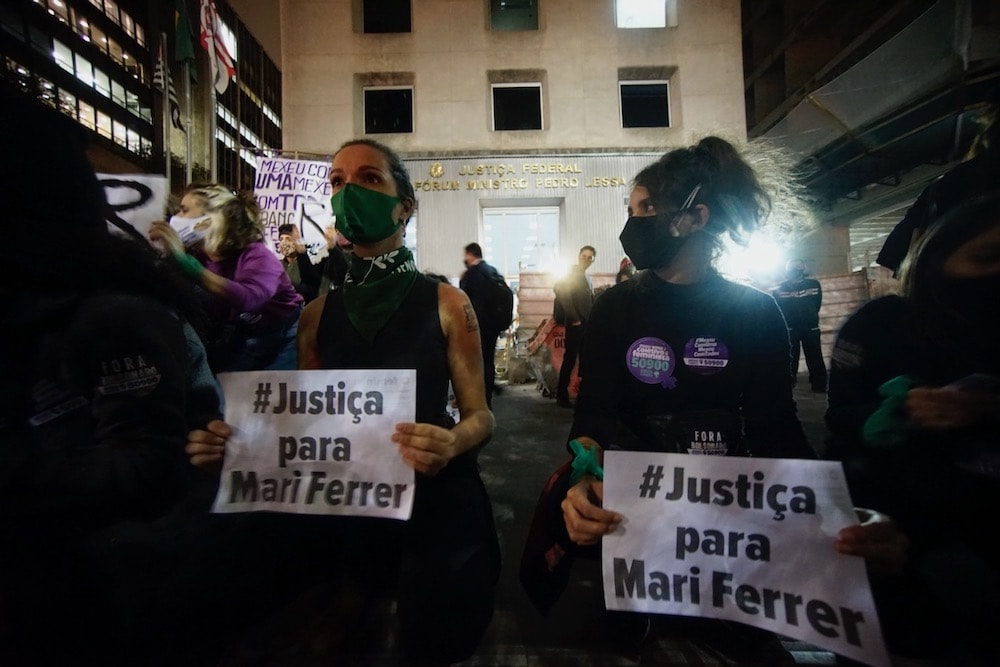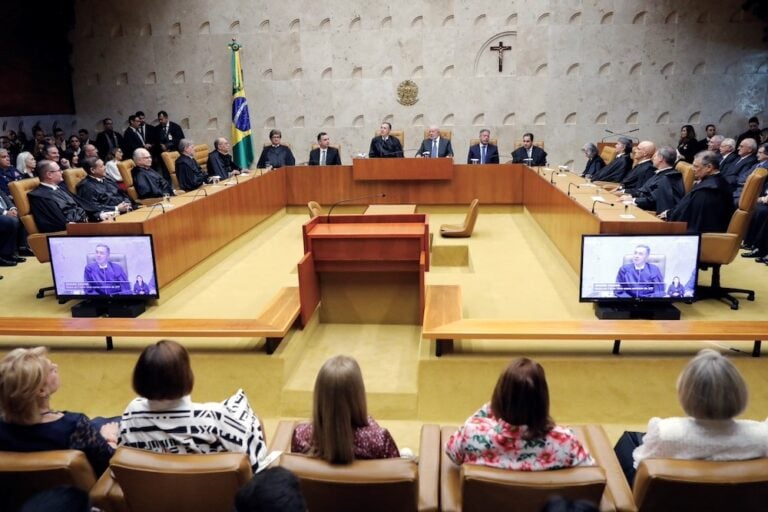In a case permeated by gender violence, journalist Schirlei Alves has been sentenced to one year in prison and damages of US$80,000 for defamation, for her report on the trial of influencer Mariana Ferrer.
This statement was originally published on abraji.org.br on 17 November 2023.
Judge Andrea Cristina Rodrigues Studer, head of the 5th Criminal Court of Florianópolis, southern Brazil, sentenced journalist Schirlei Alves to one year in prison and damages of US$80,000 for defamation, stemming from the publication of a news story on the case of Brazilian digital influencer Mariana Ferrer. Ferrer was humiliated during her testimony in the trial of a Brazilian businessman, accused of raping her in 2018.
In a scoop published by The Intercept Brasil in 2020, Alves revealed the embarrassment and sexism inflicted on the influencer during the trial. The episode sparked a national outcry and led to the creation of Law 14.245, known as the Mariana Ferrer Law, which establishes sanctions for those who commit or fail to impede acts against the dignity of victims of sexual violence and witnesses during trials.
Judge Rudson Marcos and Prosecutor Thiago Carriço de Oliveira filed criminal complaints against Schirlei Alves. Both men were involved in the Ferrer rape trial. After a blistering cross-examination by the defense attorney, the prosecutor, who entered the case midway, requested a not guilty verdict, which the judge conceded. The humiliation that Ferrer was subjected to, as shown by Ms. Alves, was so blatant that, last Tuesday, 14 November, the National Council of Justice ruled that the judge acted with negligence during the hearing. Such disciplinary rulings are rare in Brazil. It is therefore incomprehensible that Ms. Alves was sentenced to prison and to pay a substantial amount in damages, inconsistent with her alleged infraction, income and assets – an amount that not even major media outlets in Brazil could bear – to the public official whose conduct was deemed inappropriate. Additionally, it is unacceptable and outrageous that a journalist, in the exercise of her profession, reporting on a serious matter of public interest, would be harshly punished and criminally convicted for supposedly offending the honor of public officials.
Moreover, it is worth noting that gender violence permeates the entire story that connects Mariana Ferrer and Schirlei Alves. A woman is humiliated before the court when both the judge and the prosecutor had the duty to protect her. The journalist who reveals this gender-biased episode becomes herself a victim of abuse of power by the judicial system. This case is one of many such harsh attacks faced daily by women and female journalists in Brazil.
Journalism is a crucial activity for democracy. Its purpose is the scrutiny of public officials. The facts revealed by Schirlei Alves’s reporting do not constitute attacks on the honor of the prosecutor or the judge, but, rather, the right of the press to inform and the duty of the public official to be held accountable. It was only due to Alves’s investigation that the society became aware of the case, and it became widely debated in society, culminating, as mentioned, in the approval of the Mariana Ferrer Law.
Schirlei Alves is a prominent professional, known for the relevance and seriousness of her work as a data-driven reporter. We hereby express our deep solidarity towards her, reaffirming our confidence in her work. We also hope that the judiciary recognizes, in the appeals process, the importance of journalism, women journalists, and freedom of the press and issues a full reversal of these absurd judgments.
These decisions are connected to only two of the six different lawsuits faced by Alves stemming from the same article. There will be many opportunities for the Brazilian judiciary to decide whether it intends to protect freedom of expression and the press, or if it intends to take us down the dark path that leads journalists to self-censorship or, if not, imprisonment.



